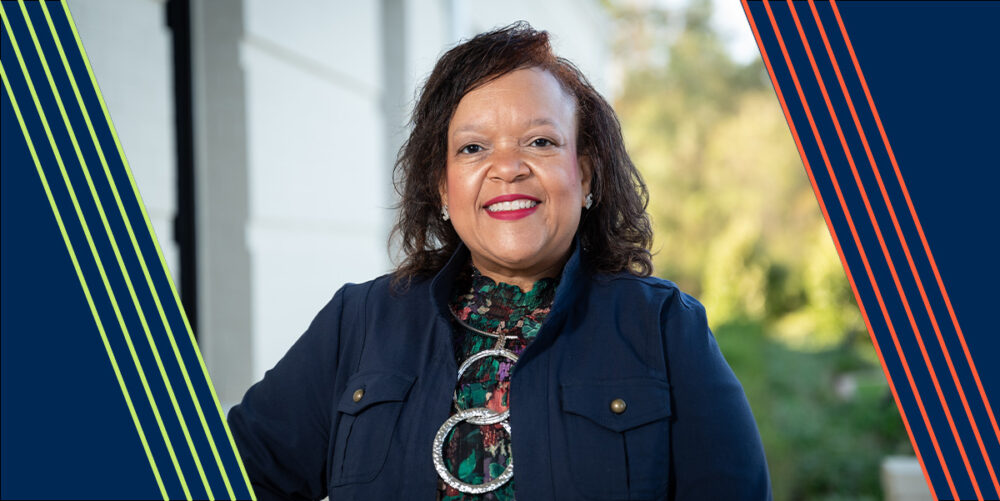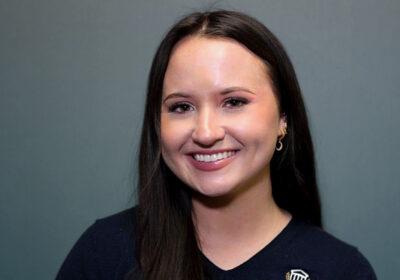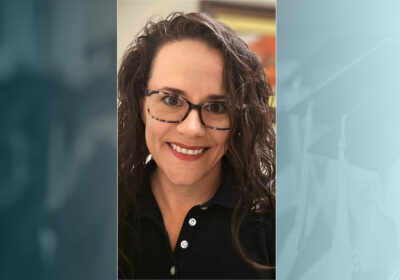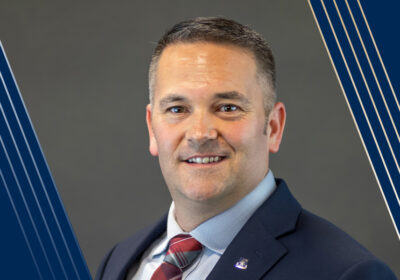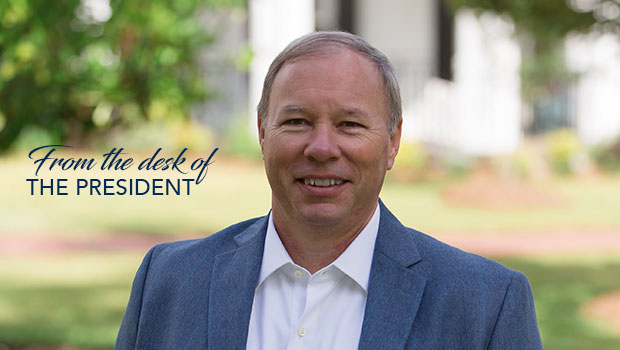Since 1995, the United States has recognized every March as Women’s History Month. During this month we celebrate the contributions and achievements that women, both past and present, have made over the course of American history, culture and community. To celebrate Women’s History Month, Columbia Southern University is honored to recognize students, alumnae and faculty who are playing a vital role in leadership within their respective industries.
As a young girl, Freda Braddock, Ed.D., was always told education opens doors that no one can shut. Despite facing adversity during her childhood, Freda knew education would be a catalyst to creating a better life for herself and her family. Today, she proudly stands as the newly appointed dean and assistant provost for Columbia Southern University’s new College of Education.
Freda’s journey is a testament to the transformative power of education and how society can harness that power to change future generations.
“I started out as a first-grade teacher in my small hometown in Mississippi,” she said. “I loved shaping young, impressionable minds, but I always felt older students might be a better fit for me.”
During her undergraduate years in college, she wanted to be sure her degree had no bounds to the students she could teach. So, in addition to her elementary education certification, she took extra classes to be able to teach English and history to high school students.
“I worked as a ninth grade English teacher and taught Mississippi studies and eventually became the lead history teacher where I was over the U.S. history state test,” said Freda. “I was able to turn around the struggling student scores to help students pass and graduate. I was really proud of that accomplishment.”
As she continued to see success in her students and become more acquainted with leading her fellow educators, Freda decided she wanted to become an administrator. She went back to school to pursue her master’s degree in educational leadership.
“I knew how much I loved influencing students and I wanted to have an even wider breadth by influencing other teachers,” she said.
With little to no job opportunities in administration, Freda knew she had two options: She could broaden her job search and move away from home, or she could teach at the college level.
“I decided to work at the local community college and ended up initially working as a recruiter for adult basic education,” she said. “Basically, what my position entailed was to go after underserved population students who had dropped out of school for various reasons while they were teenagers and try to help them re-enter the education environment. I would go out and recruit students who never had the opportunity to receive their diploma, and I would get them enrolled in our GED program. I was also their counselor who helped them along the way.”
What she found in that career was a “win-win” situation. She observed the students’ excitement as she assisted them in returning to school and, in turn, found herself enriched by their stories of overcoming adversity.
“As a person who was always around people who said, ‘you can do anything and become anything’ I never realized until working with the underserved population that everybody doesn’t get that at home,” she said. “Everybody doesn’t have a cheerleader telling them they can do it.”
Soon, Freda realized she wasn’t only making a difference in the lives of her students, but she was making a difference in the lives of their children.
“I was changing generations. I’m changing future trajectories,” she said. “Their children will not have to grow up thinking they cannot become a doctor or a lawyer. They will not get to say, ‘my family doesn’t finish school, they dropped out.’ I started realizing the difference I was making not only in those adults’ lives as they finished their GED…but I was actually helping them become better adults that would have a positive impact on their children’s lives.”
During that time, Freda went back to school to get another master’s degree, but this time in psychology. She wanted a better understanding of how to work with people from different backgrounds, each having unique stories.
“One thing I loved about going back to school again was I got to embrace online education,” she said. “At the time, I was a busy, working mom. My son is autistic and was diagnosed with Aspergers Syndrome when he was in the third grade. I knew I needed the convenience the online environment provided, and that is where my passion for online learning started because I saw what I was able to accomplish while I kept my career going.”
It was while she was working at the community college and pursuing her second master’s degree that she saw an advertisement for a teaching position at Columbia Southern University.
“I started at CSU in 2010 where I taught ‘learning strategies for success’ which aligned with what I was doing at the community college,” she said. “I advanced from there.”
Freda then began working on her doctoral degree in education while transitioning into the psychology department. Just a few years after that, she was named academic program director of psychology.
“It was very challenging and exciting,” she said. “I knew as a faculty member I was teaching hundreds of students over the years combined and I was having a big impact,” she said. “But I realized being a program director, I could have an even larger impact if I was influencing other professors.”
“I wanted our faculty members to always remember not only are we here to educate the students while they are in our course, but we also need to be mindful that they are human and are individuals going through life as they are trying to complete their degree,” she said. “Being the program director gave me the chance to, not only make sure our curriculum was in alignment, but equip our faculty members with relevant knowledge on social and emotional needs of students.”
Today Freda leads these initiatives—focusing on the whole student, not just their academics—as the dean of Columbia Southern University’s new College of Education.
“This has been life-changing for me,” she said. “I look back at all of my other educational experiences and it was a foreshadowing. Everything I have done in my past has gotten me to where I am today. Being the dean of the college helps me make sure all of our team stays on the same page which is supporting and serving our students.”
“We are arming present educators with the tools necessary to truly meet students where they are,” she said. “We want them to realize the impact that they can have on a student by simply helping them to best learn in the manner that best fits them.”
In honoring her contributions, it’s fitting to also recognize the broader narrative of women shaping and influencing education.
“Women are innately teachers,” she said. “I have personally benefitted from having so many strong women in my life. I believe little girls need to see strong women so they know what they can become one day. We have so many women who are unsung heroes who didn’t always get the credit for what they did. Shedding a light on women’s history, we are acknowledging women are basically the backbone of our society.”
The advice Freda, or “Dr. Freda” as her students call her, gives anyone who has big dreams: never give up.
“People look at where you are and they don’t realize the journey that you had to come through to get there,” she said. “The one driver that I always had was that if I kept going with my education I could be exposed to different people and different opportunities and that I didn’t have to let how I started in life— being raised by a single mother, not having the extra thrills most children would want, I knew that eventually one day I could have better.”
“I knew I wanted to be the change that I always wished I had,” she said. “I am humbly proud of the opportunities I have been given to forge new paths for other girls who look like me and for other girls who maybe dream about becoming leaders in whatever field they are in.”
To learn more about CSU’s College of Education visit our website.
Disclaimer: These testimonials may not reflect the experience of all CSU students.
Multiple factors, including prior experience, geography, and degree field, affect career outcomes.
CSU does not guarantee a job, promotion, salary increase, eligibility for a position, or other career growth.

